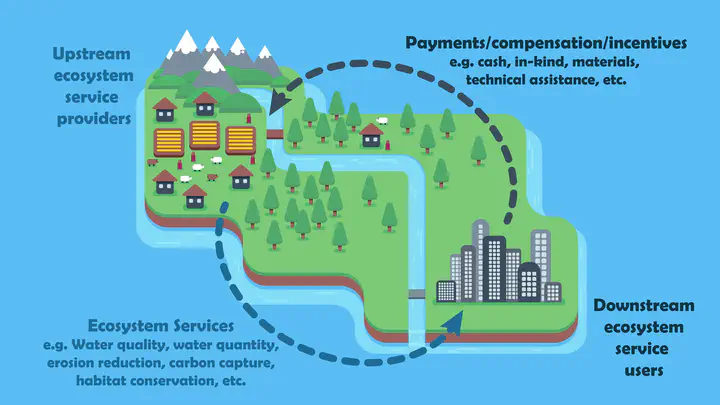Positive conservation incentives and crowding effects: a meta-analysis of lab-in-the-field experiments
 Illustration of payment for ecosystem services logic. Source: Bosco Lliso, CC BY-SA 4.0 https://creativecommons.org/licenses/by-sa/4.0, via Wikimedia Commons
Illustration of payment for ecosystem services logic. Source: Bosco Lliso, CC BY-SA 4.0 https://creativecommons.org/licenses/by-sa/4.0, via Wikimedia Commons
Motivational crowding describes the phenomenon that external monetary incentives can undermine non-monetary, intrinsic motivations to engage in the promoted behaviour. While such crowding effects have been observed and discussed for a wide array of human behaviours (Frey and Jegen 2001; Gneezy, Meier, and Rey-Biel 2011), they have emerged as a key criticism of Payment for Ecosystem Services (PES) (Rode, Gómez-Baggethun, and Krause 2015; Akers and Yasué 2019; Ezzine-de-Blas, Corbera, and Lapeyre 2019). PES are economic incentives to land-users conditional on the provisioning of certain ecosystem services (ES), for example water regulation or carbon sequestration, or on pre-defined land-use practices that are expected to maintain or increase targeted ES (Wunder 2015). PES have been implemented worldwide in various contexts (Salzman et al. 2018), and play for example a pivotal role in agri-environmental policies in Europe and the US (Schomers and Matzdorf 2013) and have been considered a key element of REDD+ for tropical forest conservation (Angelsen et al. 2017).